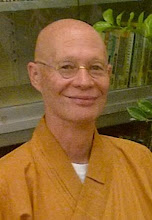
Many people are curious about these three Chinese words. Is T'ai Shen Do some sort of martial art? Is it a new religion? Is it some previously unknown Buddhist or Taoist sect? None of these!
From a young age I was exposed to Chinese culture and Buddhism and it was with much intrigue and often amusement that I watched the "New Age" philosophies and medicines being introduced into Australian culture - Acupuncture, Chinese Herbal Medicine, Taoism and Buddhism. Of course, there is nothing "new" in terms of age about these phenomena. They have been around for millenniums. The things that amused me was the West took these little snippets of Chinese medicine and philosophy, isolated them and separated them and pretended that they had the whole truth! Wrong! One cannot separate an integrated system and expect sound results.
Similarly there has been an increased interest in Chinese Buddhism in the West. The danger here again lies in the desire to separate it from the rest of Chinese culture. Much Western spirituality is compartmentalized and segregated from the rest of daily life - something done on one day of the week with little relevance or reference to other aspects of daily life. On the other hand, Chinese life is dependent upon the complex web of interconnection and interdependence. As a practitioner of traditional Chinese Pure Land Buddhism I was challenged with this fragmentation. The Masters and Patriarchs of Pure Land were all steeped from birth in a complete Chinese cultural tradition. Their relationship to their physical and mental health, environment and social ethics was fairly and squarely based upon an interconnected Chinese way of life.
As a Pure Land practitioner and mental health educator I have serious reservations about compartmentalizing Buddhism and isolating it from its cultural environment. In the natural order we know that if an organism is taken from its natural environment an web of interconnections it will die. Just try to take a fish out of water and see if it will live! Chanting, meditating and prostrating without living in harmony with our physical, mental, social, moral and environmental domains will have little effect on the practitioner and may even be harmful in the long term. Likewise to deal with a mental health issue in isolation from the physical and spiritual self is setting up for failure.
As a result I coined the phrase "T'ai Shen Do" to express a practise of Pure Land Buddhism that remains faithful to its tradition steeped in a Chinese philosophical way of life. The T'ai Shen Do methodology is about balancing the Five Pillars of life (Right Spirituality, Right Mindfulness, Right Relationship, Right Consumption and Right Movement) in a similar way to the classic Five Phases of Traditional Chinese Medicine.
The words 'T'ai Shen Do' 泰神道 mean the Peaceful Spirit Way. The Chinese character 泰 'T'ai' has particular interest. It has several meanings which are like colours on an artist's palette which when combine paint a word picture. 'T'ai' means peace, safety/security, and 'extreme height' as being on top of a mountain. In ancient times there was safety and security in being on top of a mountain as one could see the enemy coming from a great distance and be prepared. In a state of T'ai Shen we are able through practice to have a broad view of life and an awareness of the enemy within. The method (Tao/Do) of T'ai Shen is to bring all aspects of life into harmony and gentle peace.
T'ai Shen Do is not a new Buddhism. It is an awareness of Buddhism lived out in harmony with all of life and not in isolation from life. Buddhism embraces life but does not become attached to it. Further, it embraces ALL of life as a way of life. This is T'ai Shen Do.


No comments:
Post a Comment